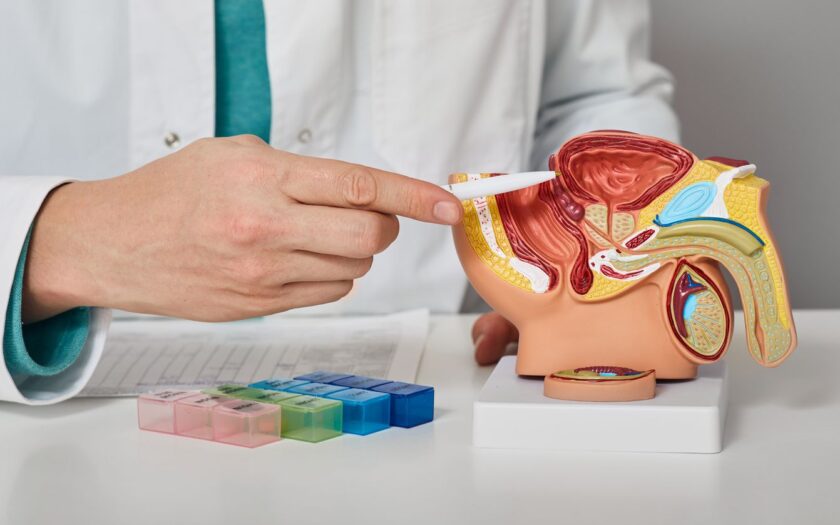Syphilis, a highly contagious sexually transmitted infection, spreads primarily through sexual activities such as vaginal, oral, and anal sex. Often, the infection remains asymptomatic for an extended period, leading to unknowing transmission to sexual partners.
In its early stages, syphilis manifests as sores, rashes, and other visible symptoms. However, if left untreated, it can progress to severe long-term complications affecting vital organs such as the brain, eyes, and heart. Fortunately, early-stage syphilis responds well to treatment with antibiotics like penicillin. However, as the infection progresses, treatment becomes more challenging. Therefore, seeking medical attention promptly upon noticing symptoms or suspecting exposure to the bacteria is crucial.
Understanding the Transmission Routes of Syphilis: Unraveling the Pathways of Infection
Syphilis, a sexually transmitted infection (STI), is primarily caused by the bacterium Treponema pallidum. Transmission occurs through direct contact with a syphilis sore on an infected individual’s body, which can happen during sexual activity or through cuts on the skin or mucous membranes. Additionally, sharing needles for intravenous drug use poses a risk of transmission.
In cases of congenital syphilis, infants can acquire the infection from their mothers during pregnancy or through breastfeeding. However, despite its contagious nature, syphilis cannot be transmitted through indirect means such as toilet seats, doorknobs, swimming pools, hot tubs, bathtubs, shared clothing, or eating utensils.
Syphilis Risk Factors: Understanding Vulnerability and Prevention Strategies
While anyone engaging in sexual activity can contract syphilis, certain factors increase the likelihood of infection. These include:
- Unprotected Sex: Engaging in sexual intercourse without the use of barrier protection, such as condoms, heightens the risk of syphilis transmission.
- Multiple Sexual Partners: Having more than one sexual partner increases the chances of exposure to syphilis and other sexually transmitted infections (STIs).
- Co-Infection with HIV: Individuals living with HIV, the virus responsible for AIDS, face an elevated risk of acquiring syphilis due to weakened immune systems.
- Presence of Other STIs: Being diagnosed with another sexually transmitted infection, such as gonorrhea, chlamydia, or herpes, can amplify susceptibility to syphilis.
Furthermore, statistical data suggests that individuals assigned male at birth are disproportionately affected by syphilis compared to those assigned female at birth. This heightened risk among individuals assigned male at birth is further compounded when engaging in sexual activity with partners also assigned male at birth.
Understanding these risk factors is crucial for developing targeted prevention strategies and promoting sexual health awareness.
Unveiling Syphilis Symptoms: From Chancres to Rash and Beyond
Syphilis typically announces its presence with the emergence of a small, painless sore known as a chancre (pronounced SHANG-kur). These chancres are usually firm, round, and inconspicuous, often appearing at the site where the syphilis bacteria initially entered the body, such as the penis, vagina, anus, rectum, lips, or mouth. However, due to their painlessness, some individuals may overlook them entirely, mistaking them for pimples or overlooking their presence, especially if located within the vagina or rectum.
As the infection progresses, additional symptoms may manifest over time. These can include:
- Rash: Syphilis may present with a rash appearing on various parts of the body, including the palms of the hands and soles of the feet. Typically, the rash initially appears on the trunk (chest, stomach, pelvis, or back) and may occur concurrently with the chancre or weeks later. The rash is often red or reddish-brown in color, may feel rough to the touch, and generally does not itch. On darker skin tones, the rash may blend with the skin tone or appear lighter, while on lighter skin tones, it may be more noticeable.
- Sores: Following the early stage of chancres, wart-like sores can develop, particularly in the oral or genital areas (penis, vagina, or anus).
Other accompanying symptoms can include fever, swollen lymph nodes, sore throat, headaches, patchy hair loss, weight loss, muscle aches, and fatigue.
Recognizing these diverse symptoms is crucial for timely diagnosis and treatment of syphilis. Seeking medical attention upon suspicion of infection can help prevent further complications and transmission of the disease.
Navigating the Phases of Syphilis: Understanding the Disease Progression
Syphilis unfolds in four distinct stages, each characterized by specific symptoms and implications:
- Early or Primary Syphilis: This stage marks the appearance of chancres, the hallmark symptom of syphilis. Chancres typically emerge at the site of bacterial entry and heal within 3-6 weeks without medical intervention. Despite their resolution, the disease persists, underscoring the importance of prompt treatment to prevent progression to subsequent stages.
- Secondary Syphilis: Secondary syphilis initiates with the onset of a rash, often observed on the chest, stomach, pelvis, or back, which may later extend to the hands and feet. These rashes may resemble those associated with other conditions. Notably, the syphilis rash does not provoke itching and can vary in color from red to reddish-brown or may be faint, almost imperceptible. While symptoms of secondary syphilis may abate spontaneously, the underlying infection remains active.
- Latent Syphilis: Without intervention, syphilis transitions to the latent or “hidden” stage, characterized by the absence of outward symptoms. Despite the absence of apparent signs, the latent phase poses a significant risk, as the disease persists within the body. Latent syphilis can endure for years, potentially lulling individuals into a false sense of security regarding their health status. While some may remain asymptomatic indefinitely, untreated latent syphilis can progress to the final stage, emphasizing the critical importance of treatment even in the absence of symptoms.
Understanding the progression of syphilis and the implications of each stage is vital for timely diagnosis, intervention, and mitigation of long-term health risks associated with untreated infection. Prompt treatment, even in the absence of symptoms, is paramount in halting disease progression and averting severe complications.
Progression to Tertiary Syphilis: Understanding Advanced Complications
In the advanced stages of syphilis, known as tertiary or late syphilis, the infection can wreak havoc on various organs and systems within the body. Complications may arise in the heart, brain, blood vessels, liver, bones, joints, and nerves. Alarmingly, up to 30%-40% of individuals who remain untreated for syphilis may progress to this stage, highlighting the critical importance of early intervention.
In tertiary syphilis, the consequences can be severe and potentially life-threatening. Untreated individuals face the risk of paralysis, blindness, deafness, dementia, or impotence. In some cases, the outcome can be fatal.
Moreover, untreated syphilis can lead to neurosyphilis, a condition where the infection spreads to the brain and nervous system. Neurosyphilis manifests with debilitating symptoms such as severe headaches, muscle weakness or paralysis, confusion, impaired concentration, or dementia.
The eyes and ears are not spared from the ravages of syphilis. Ocular syphilis occurs when the infection spreads to the eye, causing symptoms such as eye pain, redness, vision impairment, or even blindness. Otosyphilis, on the other hand, involves the invasion of the ear, leading to symptoms like hearing loss, tinnitus (ringing or buzzing in the ear), dizziness, or vertigo.
The potential for such devastating complications underscores the urgent need for comprehensive screening, early diagnosis, and prompt treatment of syphilis. Timely intervention can prevent the progression to tertiary syphilis and mitigate the risk of irreversible damage to vital organs and sensory faculties.
Syphilis Complications: Understanding the Risks Without Treatment
Left untreated, syphilis can instigate a cascade of complications affecting various organs and systems throughout the body:
- Gummas: These are small, tumor-like growths that can develop on the skin, bones, or internal organs. Gummas have the potential to erode surrounding tissue, leading to significant damage.
- Nervous System Disorders: Syphilis can precipitate a range of neurological issues, including headaches, strokes, brain damage, paralysis, bladder dysfunction, and erectile difficulties.
- Cardiovascular Disorders: The cardiovascular system is also vulnerable to syphilitic damage, which may manifest as heart valve impairment, bulging blood vessels (aneurysms), or inflammation of the aorta—a crucial artery responsible for distributing oxygen and nutrients throughout the body.
- HIV Co-Infection: Syphilis increases the risk of contracting HIV, the virus that causes AIDS, thereby compounding the health implications associated with both infections.
- Pregnancy and Childbirth Complications: Pregnant individuals with untreated syphilis can transmit the infection to their unborn baby, resulting in congenital syphilis. This condition poses grave risks to fetal health, potentially culminating in miscarriage, stillbirth, or neonatal death shortly after delivery.
These complications underscore the imperative of early detection and treatment of syphilis, particularly among vulnerable populations such as pregnant individuals. Routine screening, timely intervention, and comprehensive management are crucial in averting the devastating consequences of untreated syphilis and safeguarding both individual and public health.
Syphilis and Pregnancy: Protecting Maternal and Fetal Health
Syphilis poses significant risks to both pregnant individuals and their unborn babies. Transmission to the fetus can occur through the placenta, the vital organ responsible for supplying nutrients and oxygen during gestation. Additionally, infants can contract syphilis during the birthing process.
According to guidelines from the Centers for Disease Control and Prevention (CDC), all pregnant individuals should undergo syphilis testing at least once during their pregnancy, preferably at the initial prenatal visit. This screening is essential for early detection and intervention, as untreated syphilis during pregnancy can lead to devastating outcomes.
Depending on the duration of syphilis infection, the risks to the pregnancy increase substantially. Pregnant individuals with untreated syphilis face elevated chances of stillbirth—where the baby dies in the womb—or delivering a baby who has died before birth. Moreover, there is a heightened risk of neonatal death shortly after delivery if syphilis remains untreated.
Routine testing, coupled with prompt treatment if syphilis is detected, is paramount for protecting maternal and fetal health. Early intervention can prevent adverse outcomes associated with congenital syphilis and ensure the well-being of both mother and baby throughout pregnancy and childbirth.
If syphilis is transmitted from a mother to her baby during pregnancy or childbirth, the infant may initially appear asymptomatic but could develop symptoms within a few weeks if the infection remains untreated. These symptoms can be severe and potentially life-threatening. Untreated infants are at risk of experiencing delayed development, seizures, or even succumbing to the disease.
Babies born with congenital syphilis may exhibit a range of symptoms, including:
- Sores and rashes
- Fever
- Jaundice (yellowing of the skin and eyes)
- Anemia (insufficient red blood cells)
- Enlarged spleen and liver
- Respiratory issues such as sneezing or a congested, runny nose
- Bone abnormalities
Moreover, if left untreated, congenital syphilis can lead to long-term complications, with later signs possibly including:
- Hearing impairment or deafness
- Dental problems
- Structural deformities such as the collapse of the bridge of the nose, known as saddle nose
Early diagnosis and treatment of congenital syphilis are critical for preventing these serious health complications. Newborns born to mothers with syphilis should undergo thorough evaluation and receive prompt medical intervention to safeguard their health and well-being.
Syphilis Diagnosis: Unveiling the Infection through Comprehensive Testing
When suspecting syphilis, your healthcare provider will conduct a thorough physical examination to assess for characteristic symptoms and signs of the infection. To confirm the diagnosis and determine the extent of the disease, various tests may be employed:
- Blood Tests: A primary method for diagnosing syphilis involves blood tests, which can detect specific antibodies or antigens produced in response to the infection. These tests are typically performed in a doctor’s office or a public health clinic and serve as the cornerstone of syphilis diagnosis.
- Cerebrospinal Fluid Tests: If there is suspicion of neurosyphilis—a severe complication affecting the brain and nervous system—your doctor may recommend testing the cerebrospinal fluid, which surrounds the spinal cord. This examination can provide valuable insights into the presence and severity of neurosyphilis.
- Darkfield Microscopy: In cases where a skin sore or lymph node is present, a sample of fluid from these lesions may be examined under a microscope using darkfield microscopy. This technique enables the visualization of the syphilis bacteria, aiding in diagnosis.
These diagnostic approaches, when combined and interpreted by healthcare professionals, provide a comprehensive assessment of the syphilis infection, guiding appropriate treatment strategies. Timely and accurate diagnosis is crucial for initiating prompt intervention and preventing the progression of syphilis to advanced stages or complications.
Syphilis Treatment: Eradicating the Infection and Preventing Long-term Complications
Timely diagnosis and treatment are pivotal in curing syphilis and averting potential long-term damage to vital organs such as the heart and brain, which can persist even after the infection has cleared.
As syphilis stems from a bacterial infection, it is effectively treated with antibiotics. Penicillin stands as the primary medication for syphilis treatment, effectively combating the causative bacteria. It is imperative to complete the full course of antibiotics as prescribed by your healthcare provider, even if symptoms resolve before the regimen is finished.
During treatment, it is crucial to abstain from sexual contact until the infection is completely eradicated. Additionally, informing and encouraging recent sexual partners, including those within the past two years, to undergo testing and treatment if necessary, is essential. Failure to treat infected partners can lead to reinfection and perpetuate the spread of the disease.
Following the initiation of treatment, some individuals may experience an immune system response known as the Jarisch-Herxheimer reaction. This reaction typically occurs several hours after the first dose of treatment and may manifest as fever, chills, headache, upset stomach, rash, or joint and muscle pain. Fortunately, these symptoms typically subside within 24 hours and do not indicate treatment failure.
By adhering to prescribed treatment regimens and practicing preventive measures, individuals can effectively combat syphilis and reduce the risk of complications, safeguarding their overall health and well-being.
Following the completion of treatment for syphilis, your healthcare provider may recommend additional tests, such as blood work, to confirm the eradication of the infection and assess treatment efficacy. These post-treatment assessments serve as crucial checkpoints to ensure that the infection has been successfully eliminated from the body.
Blood tests, including serological tests for specific syphilis antibodies, are commonly employed to verify treatment outcomes and monitor for any signs of persistent infection or recurrence. These tests allow healthcare professionals to evaluate the effectiveness of the prescribed treatment regimen and make informed decisions regarding further management, if necessary.
Regular follow-up appointments with your healthcare provider are essential during the post-treatment phase to track your progress and address any concerns or questions you may have. By diligently monitoring your recovery and conducting appropriate tests, healthcare professionals can provide comprehensive care and support to ensure optimal outcomes following syphilis treatment.
By remaining proactive in post-treatment monitoring and adhering to your healthcare provider’s recommendations, you can help ensure that the infection has been successfully eradicated and minimize the risk of complications or recurrence.
Syphilis Treatment Options: Tailoring Medication to Your Needs
The choice of medication for syphilis treatment depends on various factors, including the duration of the infection and individual health considerations. Here’s what you need to know:
- Penicillin: For individuals with early-stage syphilis (infection duration of less than a year), a single dose of penicillin is typically sufficient to eradicate the infection. This treatment is administered via injection into the muscle. However, if you have a penicillin allergy, your healthcare provider may prescribe alternative antibiotics, such as doxycycline or ceftriaxone.
- Alternative Antibiotics: In cases where penicillin cannot be used, alternative antibiotics like doxycycline or ceftriaxone may be prescribed. These antibiotics are effective in treating syphilis and are administered based on the severity of the infection and individual medical history.
- Treatment for Later Stages: If syphilis has progressed to a later stage, multiple doses of antibiotics may be necessary to achieve complete eradication of the infection. Your healthcare provider will determine the appropriate treatment regimen based on the stage of the disease and other relevant factors.
- Considerations for Pregnancy: Pregnant individuals with syphilis require special consideration when selecting medication. Doxycycline, for example, is contraindicated during pregnancy due to potential risks to the fetus. In such cases, alternative antibiotics that are safe for use during pregnancy, such as penicillin, may be recommended.
Ultimately, the choice of medication is tailored to each individual’s specific circumstances and medical needs. Your healthcare provider will carefully evaluate your case and recommend the most appropriate treatment to ensure effective management of the infection while minimizing potential risks and complications.
Is Syphilis Treatable?
Yes, syphilis is entirely curable with the appropriate antibiotics. However, it’s important to note that while antibiotics can eliminate the infection, they cannot reverse any long-term damage already inflicted on your organs by the disease. Hence, seeking treatment promptly before syphilis progresses to the latent or tertiary stages is crucial to prevent irreversible harm.
Early detection and intervention play a pivotal role in effectively treating syphilis and minimizing the risk of complications. Routine screening, timely diagnosis, and adherence to prescribed treatment regimens are essential steps in combating the infection and safeguarding your health. If left untreated, syphilis can lead to severe health issues, underscoring the urgency of seeking medical care at the earliest sign of infection.
Can I Lead a Normal Life After Syphilis?
Yes, receiving prompt treatment with antibiotics during the primary or secondary stages of syphilis can enable you to recover from the infection and prevent long-term health complications. However, without timely intervention, syphilis can lead to severe health issues and even death. It’s crucial to note that having syphilis once does not confer immunity, and individuals can contract the infection multiple times.
To maintain a healthy and fulfilling life after syphilis, it’s essential to practice safe sex and undergo regular testing, especially if you are at high risk for sexually transmitted infections (STIs). By adopting preventive measures and seeking timely medical care, you can reduce the risk of recurrent infections and safeguard your overall well-being.
Syphilis Prevention Strategies: Protecting Yourself and Others
Preventing syphilis requires a combination of proactive measures and open communication with sexual partners. While treatment effectively eliminates the infection, reinfection remains a risk, emphasizing the importance of ongoing preventive efforts. Here’s what you can do to reduce your risk of syphilis infection:
- Abstain from Sexual Activity: The most effective way to avoid syphilis is to abstain from anal, oral, or vaginal sex altogether.
- Practice Safe Sex: If you are sexually active, use condoms consistently and correctly during every sexual encounter. Ensure that the condom covers any potential lesions or sores to prevent transmission.
- Use Dental Dams: When engaging in oral sex, use dental dams, thin sheets of polyurethane, to create a barrier between the mouth and the vagina or anus, reducing the risk of transmission.
- Avoid Sharing Sex Toys: Refrain from sharing sex toys to minimize the risk of transmitting syphilis and other sexually transmitted infections.
- Choose Mutually Monogamous Relationships: Being in a long-term, mutually monogamous relationship with a partner who is free of syphilis can reduce the risk of infection. However, it’s essential to ensure that both partners have been tested for STIs before engaging in unprotected sexual activity.
- Seek Medical Advice: If you are in a relationship with someone who has syphilis or suspect that you may have been exposed to the infection, consult a healthcare provider promptly. They can provide guidance on testing, treatment, and preventive measures tailored to your specific situation.
By adopting these preventive strategies and maintaining open communication with sexual partners and healthcare providers, you can play an active role in protecting yourself and others from syphilis infection and its consequences.
Informing Your Partner About Syphilis Diagnosis
Receiving a diagnosis of syphilis requires immediate action to protect both yourself and your sexual partners. Here’s what you need to know about informing your partners and seeking assistance:
- Notify Your Partners: It’s crucial to inform all current and recent sexual partners, including those within the past two years, about your syphilis diagnosis. This allows them to seek testing and treatment promptly to prevent further transmission and reinfection.
- Partner Treatment: If your current partner also has syphilis, there is a risk of reinfection after your treatment. Therefore, it’s essential for both of you to undergo treatment simultaneously to eliminate the infection and prevent ongoing transmission.
- Utilize Support Services: Your local health department can provide confidential assistance in notifying your partners about their potential exposure to syphilis. They can facilitate partner notification services while maintaining your privacy, ensuring that your partners receive the necessary information and support for testing and treatment.
- Access Treatment and Counseling: In addition to facilitating partner notification, the health department can connect you with treatment and counseling services to manage your syphilis diagnosis effectively. These resources can help you navigate the treatment process and address any concerns or questions you may have.
- Practice Abstinence: Refrain from engaging in any sexual activity until you have completed treatment with antibiotics and subsequent tests confirm that you are no longer infected. Similarly, ensure that your partner completes their treatment to prevent the risk of reinfection.
By taking these proactive steps and seeking support from healthcare professionals and public health services, you can effectively manage your syphilis diagnosis and prevent its spread to others. Open communication and prompt action are essential in safeguarding both your health and the well-being of your partners.
Key Points to Remember
- Transmission: Syphilis is primarily transmitted through sexual contact and is highly contagious. It can also be transmitted from a pregnant person to their unborn baby during pregnancy or childbirth.
- Treatment: Syphilis is completely curable with appropriate antibiotic treatment. Prompt diagnosis and treatment are essential to prevent long-term health complications and potential fatalities associated with untreated infection.
- Consequences of Untreated Syphilis: Even if symptoms disappear, untreated syphilis can lead to severe and potentially life-threatening health issues, including damage to vital organs and neurological complications.
- Seek Medical Attention: If you suspect you have syphilis or have been exposed to the infection, it’s crucial to consult a healthcare provider promptly. Early detection and intervention can prevent the spread of the disease and mitigate its impact on your health.
Syphilis is a serious infection that requires prompt medical attention for effective management. By staying informed, seeking timely testing and treatment, and practicing preventive measures, you can protect yourself and others from the consequences of syphilis.



